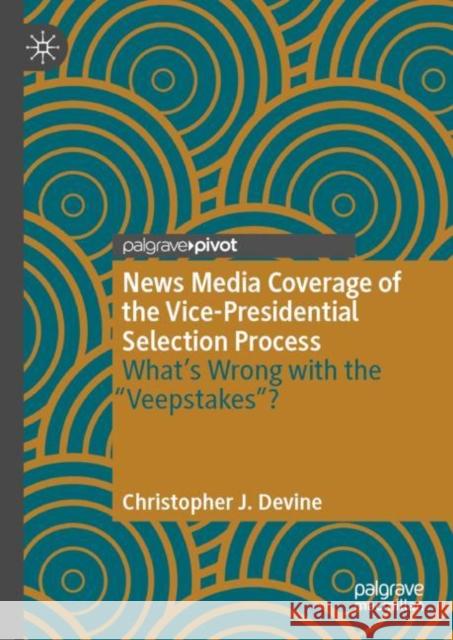News Media Coverage of the Vice-Presidential Selection Process: What's Wrong with the "Veepstakes"? » książka
News Media Coverage of the Vice-Presidential Selection Process: What's Wrong with the "Veepstakes"?
ISBN-13: 9783031281655 / Angielski
News Media Coverage of the Vice-Presidential Selection Process: What's Wrong with the "Veepstakes"?
ISBN-13: 9783031281655 / Angielski
(netto: 192,11 VAT: 5%)
Najniższa cena z 30 dni: 173,46
ok. 22 dni roboczych
Bez gwarancji dostawy przed świętami
Darmowa dostawa!
This book provides the first systematic, empirical analysis of the media’s approach to US vice-presidential selection (or the “veepstakes”). In their news coverage, Devine finds that media outlets typically treat vice-presidential selection as little more than a game—by focusing on how potential running mates might help to win the election, rather than how they might help the next president to govern. Based on an original content analysis of hundreds of veepstakes profiles from 2000–2020, this book quantifies the news media’s relative emphasis on various selection criteria, in general and across different electoral circumstances. The analysis suggests that journalists generally fail to serve the public interest by emphasizing electoral over governing considerations. However, Devine also points to positive examples of media coverage that help the public to evaluate potential running mates’ governing credentials, and suggests ways in which scholars, journalists, and citizens might encourage media outlets to provide more substantive, responsible coverage of the vice-presidential selection process in future elections.
This book provides the first systematic, empirical analysis of the media’s approach to US vice-presidential selection (or the “veepstakes”). In their news coverage, Devine finds that media outlets typically treat vice-presidential selection as little more than a game—by focusing on how potential running mates might help to win the election, rather than how they might help the next president to govern. Based on an original content analysis of hundreds of veepstakes profiles from 2000–2020, this book quantifies the news media’s relative emphasis on various selection criteria, in general and across different electoral circumstances. The analysis suggests that journalists generally fail to serve the public interest by emphasizing electoral over governing considerations. However, Devine also points to positive examples of media coverage that help the public to evaluate potential running mates’ governing credentials, and suggests ways in which scholars, journalists, and citizens might encourage media outlets to provide more substantive, responsible coverage of the vice-presidential selection process in future elections.











